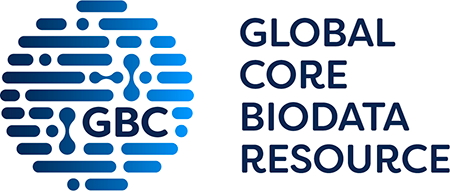Technology
UCSC Genome Browser selected to first-ever Global Core Biodata Resource List
The UCSC Genome Browser is now part of the first list of Global Core Biodata Resources—a collection of 37 resources whose long-term funding and sustainability is critical to life science and biomedical research worldwide.

The UCSC Genome Browser is the one of the most widely used resources for genomics worldwide, with about 20,000 researchers visiting the site per day to access its repository of information on the genomes of thousands of species from humans to viruses.
Now, the Browser is part of the first list of Global Core Biodata Resources—a collection of 37 resources whose long-term funding and sustainability is critical to life science and biomedical research worldwide. By bringing together major public and charitable funders, the lists’ organizers aim to ensure the continuing success of these crucial resources that currently rely on short-term, unstable funding.
Launched in 2000 to host the first draft of the human genome, the UCSC Genome Browser hosts 30 terabytes of genome annotations, with the large majority of the annotations related to the human genome. The Browser team works with more than a hundred databases that provide chromosomal data, and usually the Browser web interface (genome.ucsc.edu) is the only place where annotations from two very different databases can be shown at the same time and compared.
“We’re hoping that Global Biodata resources will increase the stability of the databases and websites that have become essential for genome analyses today,” said Max Haeussler, co-principal investigator of the UCSC Genome Browser.
The Global Core Biodata Resources list is an initiative of the Global Biodata Coalition, which is a new association of the top academic research funders worldwide, including the United State’s National Institute of Health, and National Science Foundation, nonprofits such as the Chan-Zuckerburg Initiative, and other funding institutions from the Americas, Europe, Africa, and Australia.
Each of the resources chosen to be on the Global Core Biodata Resources list were selected because they have been determined to be critically important to continued global research efforts in the life sciences and biomedicine due to their status as crucial to the components within the global life science data infrastructure.
All of the resources on the list are available openly and can be accessed and used without restriction by researchers the world over. Openness has been a crucial characteristic of the UCSC Genome Browser since it was launched in 2000 as a response to fears that private entities would attempt to patent parts of the human genome.
This first set of Global Core Biodata Resources were selected through a rigorous two-stage process open to biodata resources globally. More than 60 resources submitted expressions of interest, and at each stage of the selection process, the candidate biodata resources were assessed by a panel of more than 50 independent expert reviewers against a series of criteria that included their scientific focus, the size and reach of their user communities, their quality of service, their governance, and their impact on global research.
The list’s partner funders will now actively work with the community of Global Core Biodata Resources to explore funding models that ensure these biodata resources are able to develop and sustain the critical services they provide to the global research community.
“Selecting this first set of Global Core Biodata Resources is an important step for better understanding the broader ecosystem of data resources that are vital to life scienceand biomedical research,” said Eric Green, director of the US National Human Genome Research Institute and Global Biodata Consortium board member.